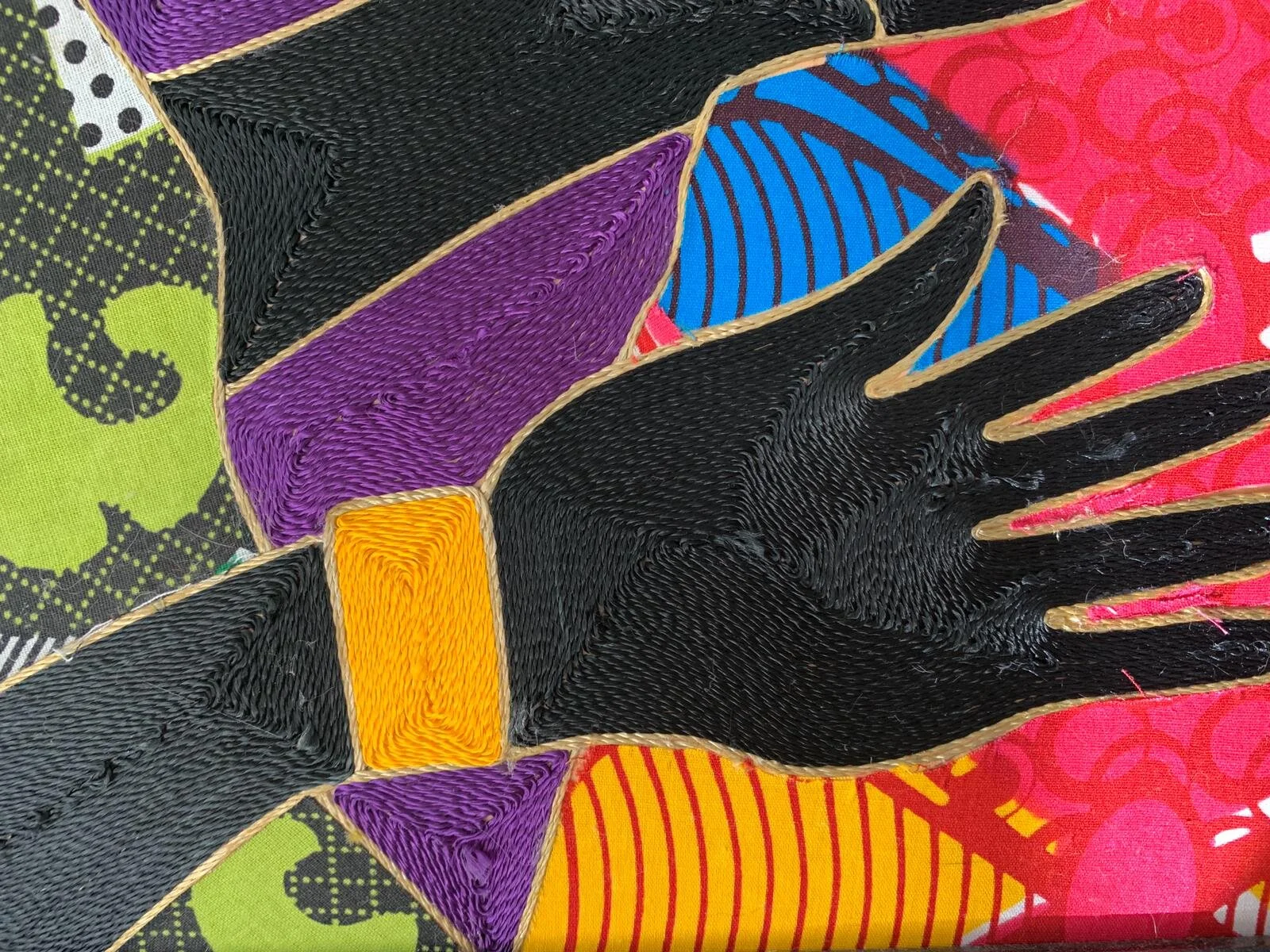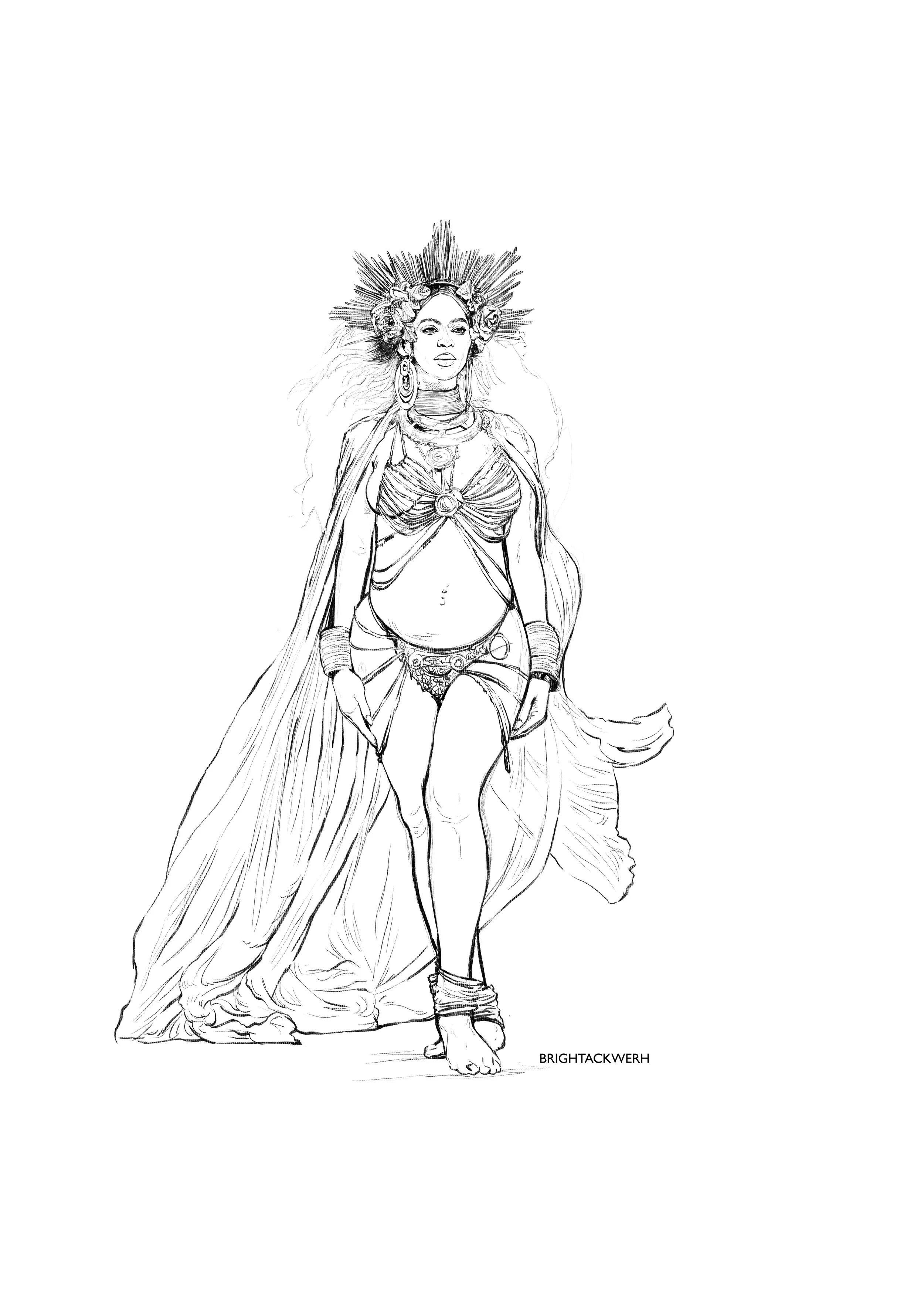On Beyoncé’s Africa: African Perspectives on ‘Black Is King’
/Cover Picture: Drawing by Bright Ackwerh @brightackwerh (posted with the artist’s generous permission)
On August 14th, 2020, we held our first virtual panel. This event featured speakers Rotimi Fasan, Judicaelle Irakoze, and Nedine Moonsamy, who shared their perspectives on Beyoncé’s visual album “Black is King”. This event was co-organized with Everyday Orientalism. You can watch a video of the panel discussion here:
Abstract
In 2019, Beyoncé Knowles-Carter curated the accompanying soundtrack to Disney’s remake of The Lion King and collaborated with singers and artists from the African continent, including Nigeria, South Africa, Ghana, and Cameroon. Calling this album, her “love letter to Africa“, she saw herself as bringing together a Black audience on the African continent and in the diaspora. It can be appreciated in continuity with the pro-Blackness themes of her 2013 Super Bowl Halftime show performance, her 2016 album Lemonade, and her historic 2018 set at Coachella. Drawing on songs from the 2019 “Lion King: The Gift” album, her latest visual album “Black is King” (2020) is advertised as celebrating the “Black experience” and was filmed in countries like South Africa and Ghana. It has been praised for drawing on and bringing attention to various artistic talents in Africa, for her use of Afropop and African symbols and cultures, and for being a product of visual and musical genius that transcends any one place and time. While “Black is King” has been celebrated in the African continent and among the diaspora, there have been questions, concerns, and critiques from Africans – regarding Beyoncé’s representation of “Africa” and the role that capitalism plays in its production and distribution. This virtual panel seeks to focus on these African perspectives and to contextualize Beyoncé’s new visual album in a longer history of relations between the African continent and its diaspora in the U.S.A. It shall allow us to speak about a variety of other questions, including Pan-Africanism and its histories, popular culture, and the role of “Africa” and Africans in the “Black is King”‘s production and reception.
Speakers
Rotimi Fasan is a Professor in the Department of English and International Studies at Osun State University. Drawing on insights from literary, postcolonial, and cultural studies, his work explores the theme of national identity implicit in the efflorescence of indigenous languages in popular cultural practices in Nigeria.
Judicaelle Irakoze is a writer, educator and entrepreneur. She is a published author, a regular contributor to the blog African Feminism, and currently serves as the President and Executive Director of “Choose Yourself” an NGO that promotes race and gender equity through the liberation of women.
Nedine Moonsamy is a Senior Lecturer in the English Literature department at the University of Pretoria. She is currently writing a monograph on contemporary South African Fiction and otherwise conducts research on science fiction in Africa. Her debut novel, “The Unfamous Five”, is published by Modjaji Books (September 2019).
When?
Aug. 14th 2020, 10am Toronto time = 7am San Francisco time = 3pm London time = 4pm Cairo time = 7pm Mumbai time = 10pm Singapore time = midnight on Aug. 15th Sydney time. The whole event shall last about 1:30 hour (panel discussion followed by q&a).
Accessibility
We recommend webcaptioner.com (using Google Chrome as a browser) or the smartphone app LiveTranscribe for closed captioning during the event. Notes from each of the speakers can be provided before the event for those who need it to follow along. Please get in touch with us if you have any concerns about accessibility. The session will be recorded and made available in the future.
Suggested readings and links
Aku, T. 2020. “Please, Appreciate “Black Is King” for What It Is”, Teen Vogue.
Blair, O. 2020. “Beyoncé’s Producer Sharifah Issaka On The Importance Of African Talent And Representation In ‘Black Is King’“, Elle.
Boluwatife, A. and J. Segun-Lean. 2019. “Beyoncé and the Heart of Darkness”, Africa Is a Country.
Fatobe, K. 2020. “Black Is King: Did Beyoncé deliver or has the African continent been misrepresented?“, The Face.
Gordon, M.S. 2018. “Family Feud: Jay-Z, Beyoncé, and the Desecration of Black Art”, Medium.
Hobson, J. 2020. “Oshun Energy in Beyoncé’s “Black Is King“, Ms.
Irakoze, J. 2020. “Why We Must Be Careful When Watching Beyoncé’s ‘Black Is King’”, Essence.
Ivie, A. 2019. “Diversity Is in the Details: What Beyoncé’s ‘The Lion King: The Gift’ Gets Right and Wrong“, Okayplayer.
Jackson, L.M. 2020. “Beyoncé’s Knowing Ethnic Splendor in “Black Is King”“, The New Yorker.
Jatou, H. 2020. “Beyoncé Is Not Beyond Reproach“, Medium.
Malatji, T. 2020. “Black America Is King“, Culture Review.
Okarafor, N. 2019. “Africanfuturism Defined”, Nnedi’s Wahal Zone Blog.
Shwartz, D. 2019. “‘The Lion King: The Gift’ Is Beyonce’s Love Letter to Blackness”, Rolling Stone Magazine.
Soliman, D. 2020. “Bring it Back: Ancient Egypt as Imagined in Afro-American Music“, Antiquipop.
Valela, N. 2020. “Beyoncé Divides and Unites with Her ‘Love Letter to Africa’” New Frame.
Beyoncé by Bright Ackwerh (posted with the artist’s generous permission)


